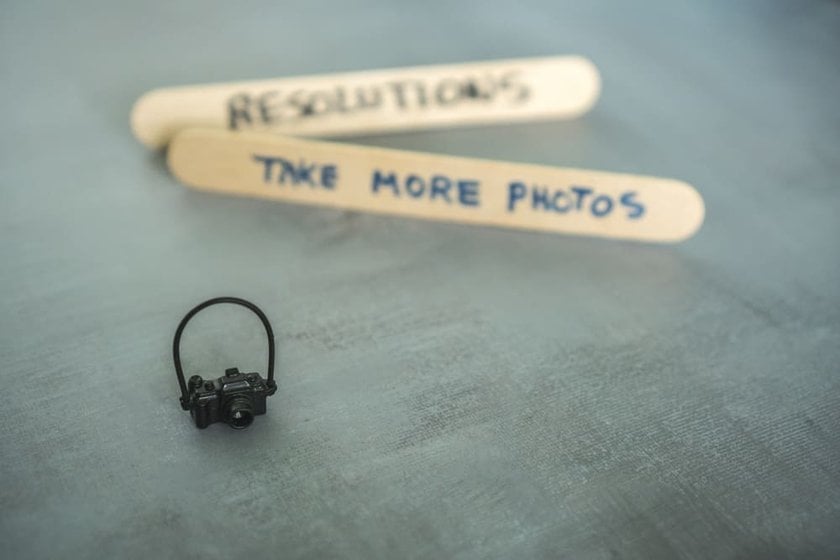Start the New Year Right: Goal-Setting for Photographers
Last Updated on December 09, 2025

Kickstart the New Year by setting achievable photography goals. Learn practical tips for improving skills, building portfolios, and growing your passion for photography.
As a photographer, embarking on a new year offers a fresh slate to refocus your efforts, refine your skills, and reach new heights in your craft. Whether you’re a budding enthusiast or an experienced professional, setting intentional goals can be a game-changer.
It provides structure, boosts motivation, and helps you achieve milestones that once felt out of reach. In this article, we’ll start with inspiring examples of photography goals to ignite your creativity and help you envision the possibilities for your year ahead. From there, we’ll explore why goal-setting matters, followed by actionable steps to set and achieve those goals. By the end, you’ll have the tools to turn your aspirations into reality and make this your most productive and rewarding year yet.
Examples of Photography Goals for Inspiration
 Need ideas to ignite your passion and set purposeful goals? Here are some examples to spark your creativity:
Need ideas to ignite your passion and set purposeful goals? Here are some examples to spark your creativity:
- Complete a “365 Project” by taking and sharing one photo daily.
- Enter at least three photography competitions.
- Organize your photo archive and create a curated portfolio.
- Collaborate with a makeup artist or stylist for a themed photoshoot series.
- Launch a personal project exploring a subject you’re passionate about.
- Develop a consistent editing style that aligns with your artistic vision.
Let these examples guide you in crafting your own path toward growth and creativity.
Why Set Goals as a Photographer?
 Goals Provide Direction and Focus
Goals Provide Direction and Focus
Photography is a vast field, and it’s easy to feel pulled in countless directions. From exploring new genres to keeping up with editing trends, the opportunities are endless—and sometimes overwhelming. By setting specific, measurable, achievable, relevant, and time-bound (SMART) goals, you can clarify what truly matters to you. Goals act like a compass, pointing you toward purposeful growth while helping you sideline distractions or projects that don’t align with your priorities.
Goals Help Track Progress
Have you ever considered your work and wondered if you’ve made any real progress? Goals help solve this problem by providing measurable benchmarks. Whether it’s mastering Luminar Neo or increasing your client base by a certain percentage, tracking progress lets you see tangible evidence of your efforts. This clarity is especially motivating when working on long-term projects or honing specific skills.
Goals Keep You Motivated
Photography is both an art and a challenge. There will be days when inspiration wanes, equipment fails, or progress feels slow. During those times, well-defined goals act as a source of motivation. Achieving even small milestones generates a sense of accomplishment and re-energizes your drive to tackle the next challenge.
Steps to Set Meaningful Photography Goals for the New Year
 Start with Your Long-Term Vision
Start with Your Long-Term Vision
Before getting into the nitty-gritty of specific goals, take a step back and think about your broader aspirations. Where do you see yourself as a photographer in 5, 10, or even 20 years? Your vision could include becoming a sought-after wedding photographer, showcasing your work in a gallery, launching a successful YouTube channel about photography, or building a thriving freelance business. This long-term vision serves as your North Star. Every goal you set should bring you closer to realizing this overarching dream.
Break Goals Down into Manageable Steps
Once you have a big-picture vision, it’s time to reverse-engineer it into smaller, actionable steps. Breaking goals into chunks makes them less intimidating and provides a clear roadmap for achieving them. For example, if your ultimate aim is to become a professional photographer, your smaller steps might include:
- Year 1: Complete five workshops, build an online portfolio, and network with industry professionals.
- Year 2: Secure two monthly paying clients and invest in advanced equipment.
- Year 3: Transition to full-time photography and develop a marketing plan.
Each step is a milestone, keeping you on track toward your larger dream.
Use the SMART Framework
A proven way to set effective goals is by following the SMART framework:
- Specific: Clearly define what you want to achieve.
- Measurable: Include criteria to track your progress.
- Achievable: Ensure your goal is realistic and within reach.
- Relevant: Align it with your long-term vision.
- Time-bound: Set a deadline for completion.
For instance, instead of saying, “I want to improve my editing skills,” make it SMART: “I will complete three advanced Luminar Neo courses by June and use my newly acquired skills to edit a 15-image series showcasing different color grading techniques.”
Prioritize Personal and Professional Development
Goals should strike a balance between professional ambitions and personal growth. On the professional side, you might aim to expand your client list, upgrade your equipment, or specialize in a niche like portrait or landscape photography. For personal growth, consider goals like experimenting with a new genre, developing a daily creative habit, or engaging in collaborative projects to expand your perspective.
Schedule Time for Skill Development
The photography industry evolves rapidly, with new technologies and techniques emerging yearly. To stay ahead, dedicate time to learning. Set goals around improving your craft, such as:
- Spending 2–3 hours weekly practicing specific techniques.
- Enrolling in Luminar Neo workshops or online courses to master lighting, composition, or editing techniques.
- Following trends in photography blogs or forums to keep your work fresh and relevant.
Focus on Building Your Brand
If your long-term vision includes turning your passion into a business, branding should be a significant part of your goals. For instance:
- Create a professional website: Showcase your portfolio with well-organized galleries, client testimonials, and a clear call-to-action.
- Enhance your social media presence: Set goals to post consistently, engage with followers, and use analytics to refine your strategy.
- Network within your niche: Attend events, join photography communities, and collaborate with other creatives to grow your visibility and reputation.
Regularly Review and Adjust Goals
Life may throw curveballs or offer unexpected opportunities as you work toward your goals. Flexibility is key. Schedule monthly or quarterly check-ins to review progress, celebrate wins, and revise goals as needed. This iterative process ensures your objectives remain relevant and achievable.
Overcoming Common Goal-Setting Challenges
 Even with the best intentions, sticking to goals can be tough. Here are some tips to overcome common obstacles:
Even with the best intentions, sticking to goals can be tough. Here are some tips to overcome common obstacles:
- Feeling Overwhelmed: If your goals feel daunting, break them down further into daily or weekly tasks.
- Procrastination: Set deadlines and hold yourself accountable by sharing your goals with a trusted friend or mentor.
- Lack of Motivation: Remember your "why"—your long-term vision—and celebrate small victories to stay inspired.
Your Path Ahead: The Power of Purposeful Goal-Setting
 Goal-setting is more than a task to tick off your to-do list; it’s a powerful tool for personal and professional growth. By defining clear objectives, tracking your progress, and staying adaptable, you’ll foster motivation and take purposeful steps toward your dream photography career. So grab a notebook, reflect on your vision, and start setting your photography goals for the new year. Each step you take brings you closer to transforming your passion into a thriving craft. Let this be the year you imagine success and actively work to achieve it.
Goal-setting is more than a task to tick off your to-do list; it’s a powerful tool for personal and professional growth. By defining clear objectives, tracking your progress, and staying adaptable, you’ll foster motivation and take purposeful steps toward your dream photography career. So grab a notebook, reflect on your vision, and start setting your photography goals for the new year. Each step you take brings you closer to transforming your passion into a thriving craft. Let this be the year you imagine success and actively work to achieve it.

 Goals Provide Direction and Focus
Goals Provide Direction and Focus Start with Your Long-Term Vision
Start with Your Long-Term Vision



